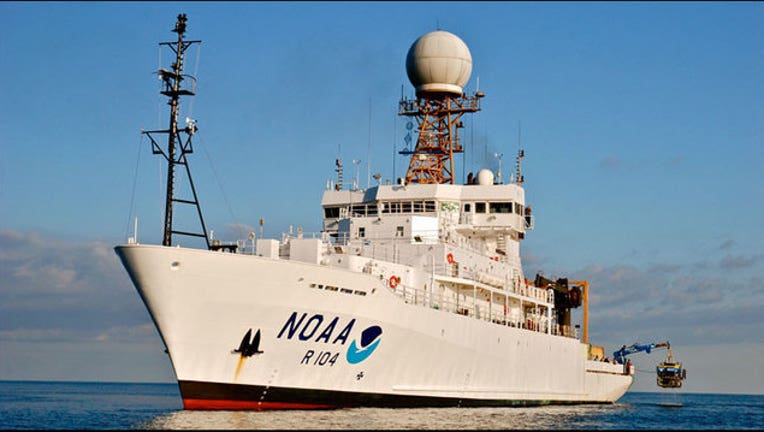Better forecasts are wanted, but nobody wants to pay for it

Photo of a research vessel courtesy of the National Oceanic and Atmospheric Administration (NOAA)
KMSP - In this new age of information, when anything and everything we want to know is at our fingertips, EVERYONE wants a hyper accurate forecast. You want to know what the temperature will be at your backyard bar-b-que this weekend, or whether a tornado will hit your house 6 hours from now, or how much snow you will have to shovel tomorrow… or even whether it’s going to rain on your wedding day next year. Well, we can’t exactly work miracles, but there’s really no reason why you shouldn’t have an extremely accurate forecast for the next few days. Well, there is one reason; funding.
Weather forecasting has advanced leaps and bounds over what it was 20, 30, or 40 years ago. Our forecast 4 days away in 2017, are as good as what a 12 hour forecast was in 1990. But let’s face it, advances in meteorology don’t just come out of thin air. Science and technology costs money for sustained research and development. Virtually everything we know about our atmosphere and oceans comes from decades of SUSTAINED government funded scientific research. And now, the Washington Post has learned that the government branches that advance our knowledge of the atmosphere, the National Oceanic and Atmospheric Administration (NOAA), along with the National Weather Service (NWS), will likely take deep funding cuts in the years to come.
According to the Washington Post, the White House is seeking to cut NOAA’s budget by 17%. That would cut 126 million dollars out of their research division, and 513 million dollars from their satellite division, amongst other cuts. The NWS would see a 5% budget cut.
While this may not seem like much, imagine losing 17% of your salary starting tomorrow. Any and all improvements in your life would likely go out the window. All of sudden, your planned kitchen upgrade will have to wait, the carpets you were gonna get professionally cleaned are now just gonna be vacuumed, and trading in your old clunker car for a new one is now just a dream.
Bryan Wood, a Meteorologist and Storm Damage Analyst for a Fortune 300 Insurance Company out of Ohio tweeted “Estimates say National Weather Service costs a taxpayer $3-4/yr. AMAZING bargain for all the forecasts & services. USA is lucky to have NWS!” That’s right; the National Weather Service operates for every human in the United States at the cost of a happy meal from McDonald’s. That happy meal buys all Americans added safety and security. No, it’s not just about whether or not it’s going to rain on your outdoor wedding, it allows the airlines to operate safely in and out of adverse weather conditions. It will alert you if a mile wide tornado is heading for your location or if freezing drizzle fell overnight and the roads will be icy. It allows our military to operate anywhere in the world effectively because they know how strong the ocean currents are, or how thick the cloud cover will be, or how much water they need to take with them in combat, etc… It allows the effortless passing of imports and exports through shipping channels. It keeps you safe on cruise ships that have to sail through treacherous waters, letting the captain know how high the waves might be or whether they need to go around a storm. Rip tides, ocean currents, water temperatures, wave heights, precipitation type, wind speed, humidity level, air pressure… I mean the list goes on. There is a reason why the easiest subject to talk about with a stranger is weather… because it affects EVERY aspect of our lives. So why not give it the funding it needs and deserves?
The big talk over the last few years has been with the forecasting computer models. “Superstorm Sandy” was really the first time that differing computer model forecasts had been thrusted into mainstream knowledge. The talk afterword was that the European computer model performed much better than the American counterpart… which was entirely accurate and is now often times the case. But there is a reason why the European version often performs better; funding. The brits have pumped billions into their supercomputers and weather departments over the last decade, when the U.S. is just trying to keep the lights on. Now I’m not saying we give NOAA unrestricted access to whatever funds they want… I mean, let’s get real here. What I am saying is that when costs continue to increase and funding continues to decrease, there is a breaking point where the whole system just shuts down. Considering how much weather affects all of our lives, we can’t afford to let that happen. The price we will pay at the end of that road won’t just be billions or trillions of dollars, but in American lives.

